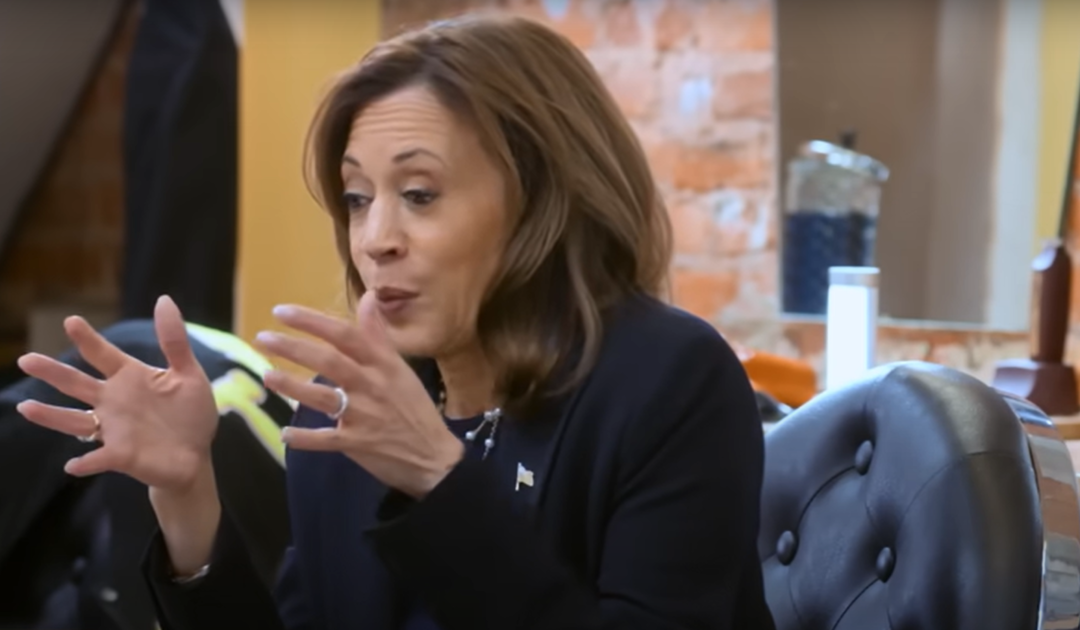The Harris Economy Hurt Families, and She’s Planning More Inflation
November 2, 2024

Under Biden and Harris, neighborhood stores that stood for generations have finally closed down due to rising inflation and crime.
At the stores that remain open, prices are now at least 20% higher than when Biden and Harris took office, and Kamala Harris is planning more of the same.
House Ways and Means Committee Chairman Jason Smith has criticized the Biden-Harris administration’s economic policies, underscoring their impact on American families.
Under this administration, prices have surged by more than 20%, making essentials like food, clothing, and housing increasingly difficult to afford. Real wages have fallen, with inflation consistently surpassing the Federal Reserve’s target and outpacing wage growth for 26 straight months.
Interest rates have hit 23-year highs, causing mortgage costs to skyrocket and credit card debt to exceed $1 trillion, with near record-high credit card interest rates adding even more pressure.
Additionally, savings have dwindled as families exhaust what remained of their pandemic savings, with the personal savings rate remaining below pre-administration levels.
More than a third of families incurred late fees in the past year due to financial strain.
Chairman Smith argues that Harris’s plan to end the Trump tax cuts would place further burdens on Americans already struggling with inflation, while the Biden-Harris administration’s policies continue to rely on increased federal spending, leaving many families financially stretched.
Trump’s economic policies, including tax cuts and deregulation, would offer more benefits than Kamala Harris’s “socialist-inspired” economic plans.
Harris’s proposals for costly government programs and giveaways risk ballooning the national debt and further fueling inflation.
Kamala Harris’s message resonates with those who consume rather than pay taxes.
She has promised to reduce the cost-of-living crisis, wipe out student loan debt, decrease housing costs, crack down on perceived “price gouging,” and remove medical debt from credit reports so that uncreditworthy individuals can borrow more, driving themselves into default.
And she aims to extend these policies not only to citizens but also to the 10 million illegals who entered the country under her watch.
As a result, the population reliant on government handouts continues to grow, while the taxpaying population shrinks, eroding the voice of taxpayers who may soon be outvoted by those who primarily consume tax-funded resources.
It’s as though she’s reading straight from a Soviet playbook: “Expropriate the expropriators!” and “Land to the peasants, factories to the workers!”
Since there’s no such thing as free money, Kamala Harris will need to raise funds to support her promises, which means higher taxes for working Americans. It also means more money printing and debt creation, both of which will drive up inflation.
Though she hasn’t outlined a significant deficit reduction plan, much of the mainstream media suggests she would add less to the deficit than Trump.
However, this assumption is based on the expectation that she can pass all of her wealth redistribution policies, including unconstitutional ones like taxing unrealized capital gains, which many view as egregious overreach.
These projections of a lower deficit under Harris rely on her ability not only to impose but also to enforce these extreme taxes and asset seizures. Even with aggressive taxation, it’s a myth that these policies could fully fund her grand giveaway.
The “free money” would start immediately, while revenue policies could take years to implement—if they succeed at all. In the meantime, those who work hard, invest wisely, and save may bear the financial burden.
Kamala Harris’s economic proposals are projected to increase the national deficit by approximately $3.5 trillion over the next decade, and the resulting inflation is likely to compel the Federal Reserve to raise interest rates further.
Beyond exacerbating inflation, her plan to impose a 44.6% capital gains tax and an unprecedented 25% tax on unrealized gains could drive capital out of the U.S. economy, discouraging investment and reducing job creation while driving up prices and costs.
Harris’s proposed remedy—price controls, or government-imposed limits on price and wage increases—is a literal echo of communism, a system that has failed in every country where it’s been implemented.
No communist country has ever provided its citizens a better standard of living than the U.S., where market-driven economic policies and strong protections for personal rights, freedoms, and property have always been upheld.
Harris’s departure from these free-market principles risks undermining economic stability and growth in America.
The post The Harris Economy Hurt Families, and She’s Planning More Inflation appeared first on The Gateway Pundit.
Go to Source
Author: Antonio Graceffo

